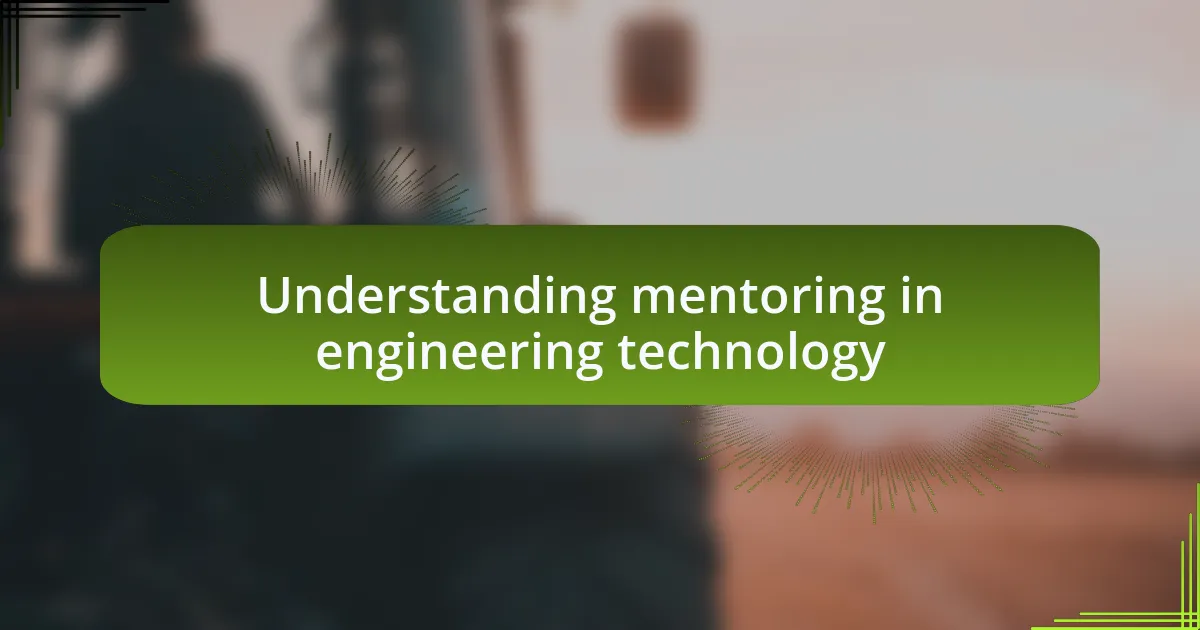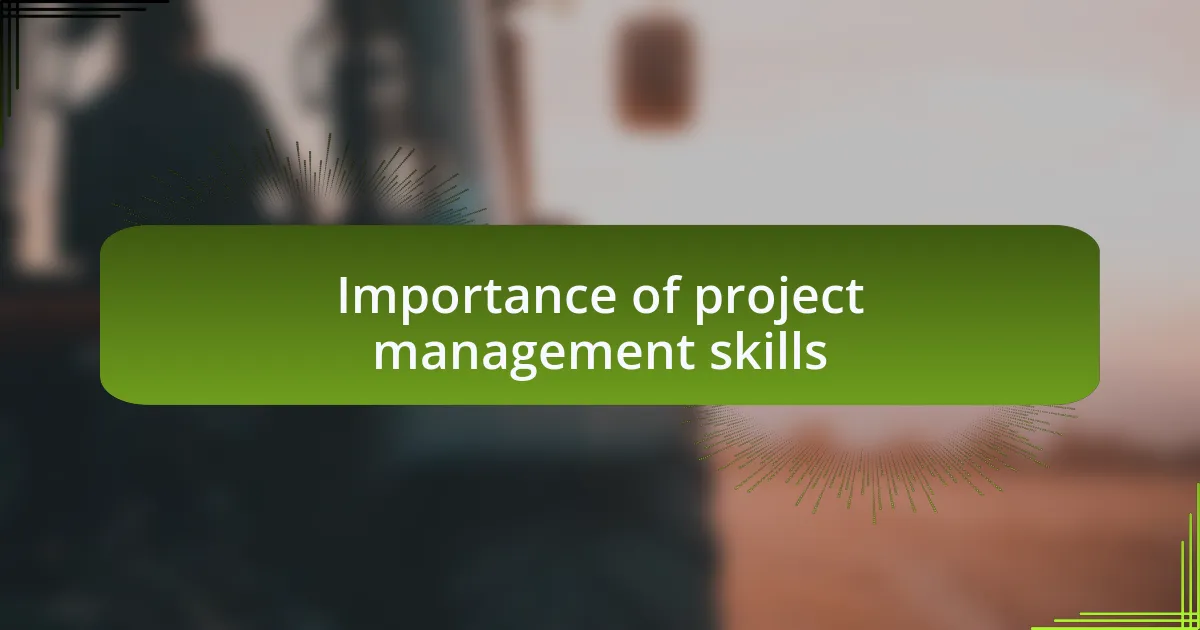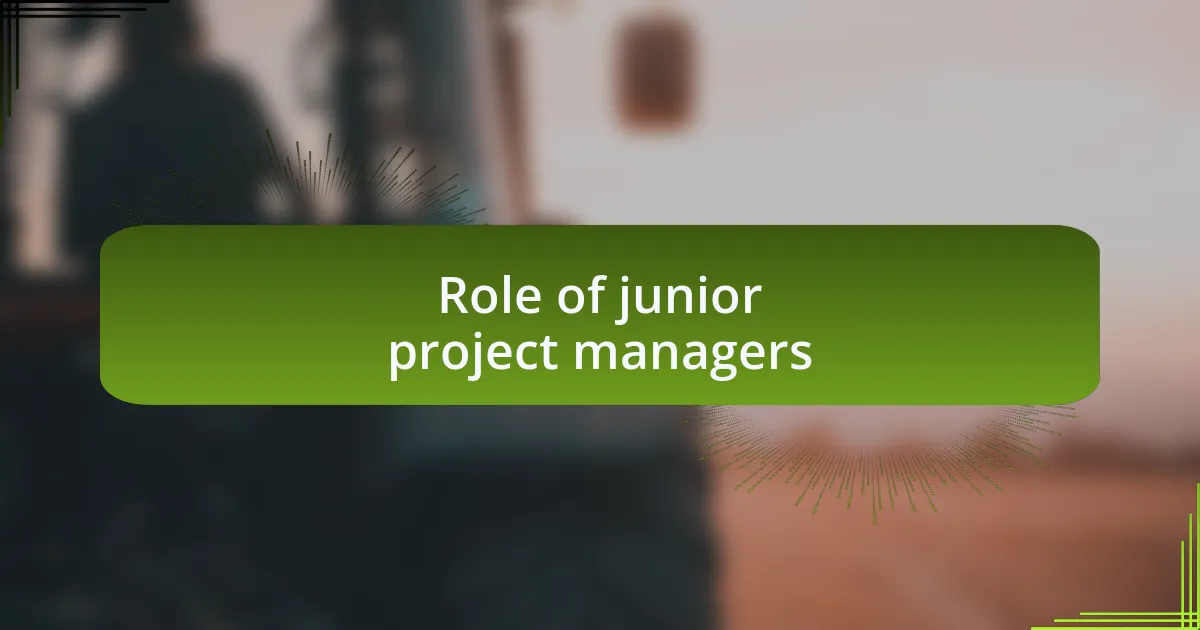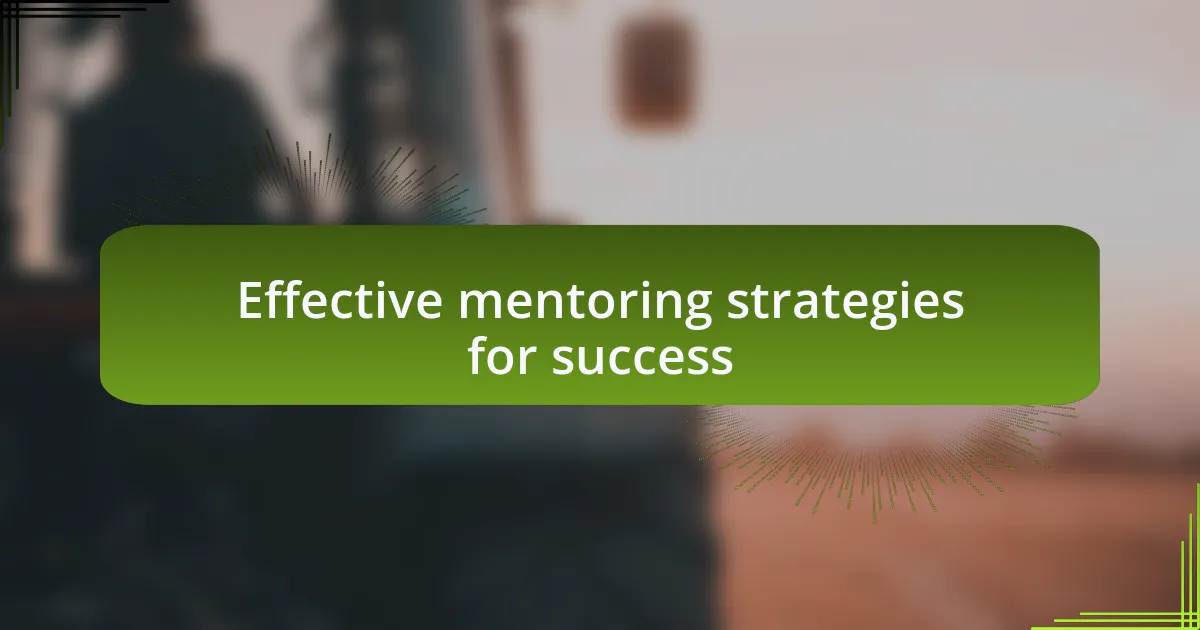Key takeaways:
- Mentoring in engineering technology promotes personal and professional growth through mutual learning and confidence-building.
- Effective project management relies on strong communication, adaptability, and the ability to navigate challenges, impacting project success significantly.
- Junior project managers play a vital role in team dynamics and collaboration by fostering curiosity and taking initiative.
- Tailored mentoring strategies, including one-on-one sessions and hands-on experience, enhance learning and confidence for junior project managers.

Understanding mentoring in engineering technology
Mentoring in engineering technology is a transformative process that fosters both personal and professional growth. When I first started mentoring junior project managers, I was amazed at how quickly both of us learned from the experience. It made me reflect: How often do we really take the time to nurture the next generation in our field?
The dynamics of mentoring go beyond simply sharing knowledge. During a particularly challenging project, one of my mentees expressed doubts about their capabilities. In guiding them through that rough patch, I realized that mentorship is just as much about building confidence as it is about technical skills. Have you ever experienced a moment where a simple word of encouragement shifted your perspective?
Moreover, mentoring helps to bridge the gap between experience and innovation. I remember a mentee who introduced a fresh approach to project management that I had never considered. That exchange taught me that mentoring isn’t a one-way street; it’s a symbiotic relationship where both parties evolve. Isn’t it fascinating how a junior perspective can often ignite innovative solutions?

Importance of project management skills
Project management skills are essential in ensuring successful project outcomes. I’ve seen firsthand how effective project management can make the difference between chaos and seamless delivery. Have you ever worked on a project where poor planning led to missed deadlines? I have, and the frustration that ensued highlighted the importance of solid management practices.
Communication is at the heart of project management. I recall a time when a miscommunication nearly derailed a major initiative. It was a struggle to realign the team—but it underscored a critical lesson: clear communication is not just beneficial; it’s vital for project success. How do you ensure that messages are crystal clear among all stakeholders?
Additionally, project management empowers teams to adapt and thrive under pressure. During a particularly turbulent project phase, my ability to remain calm and focused allowed the team to rally together. I often wonder, what would happen if every project manager cultivated an ability to navigate uncertainty with resilience? In my experience, that skill is as important as any technical expertise.

Role of junior project managers
Junior project managers play a crucial role in bridging the gap between the project’s strategic vision and day-to-day operations. I remember mentoring a junior PM who, despite being new to the field, brought a fresh perspective to our planning sessions. Their willingness to ask questions reminded me just how essential curiosity is in this role—it’s the gateway to deeper understanding and effective problem-solving.
Additionally, I’ve observed that junior project managers often act as the glue that holds teams together. In one of my past projects, a junior PM took the initiative to organize regular check-ins, which transformed our team dynamics. How many times have team members felt isolated when working on different tasks? Those simple catch-ups really reinforced collaboration and built trust, which is invaluable for project success.
Moreover, junior project managers must demonstrate adaptability, especially when faced with unexpected challenges. I once saw a junior PM handle a sudden budget cut with grace. Instead of succumbing to panic, they developed a revised plan almost overnight, showcasing resilience and resourcefulness. Isn’t it fascinating how the ability to pivot can make or break a project? Their proactive approach left a lasting impression on me about the essential traits of effective project management.

Effective mentoring strategies for success
Effective mentoring requires a tailored approach that resonates with each junior project manager’s unique learning style. One strategy I found particularly effective is regular one-on-one sessions where we discuss not only project updates but also personal career aspirations. During these conversations, I often ask, “What challenges are you facing, and how can I support you?” This simple question fosters an atmosphere of openness, allowing them to express their concerns freely. I’ve noticed that when they feel understood, their confidence soars, which is a remarkable transformation.
Another valuable technique is to encourage hands-on experience through shadowing opportunities. I vividly remember a junior PM I mentored who accompanied me to client meetings. Witnessing the dynamic interactions firsthand was eye-opening for them; they quickly absorbed not just the technical details, but also the subtleties of communication that are often overlooked. Isn’t it incredible how much can be learned through observation? This kind of exposure can significantly accelerate their professional growth and competence.
Additionally, promoting a culture of feedback is essential. I emphasize providing constructive feedback regularly, as it creates trust and enhances learning. In my experience, I’ve found that framing feedback in a positive light by highlighting strengths first can lead to better receptivity. When I tell a junior PM, “You did this really well, and here’s how we can build on it,” it encourages them to embrace the learning process. How powerful is it to witness someone thrive because they feel supported and guided?

Personal growth as a mentor
As I stepped into the role of a mentor, I quickly realized that guiding others also serves as a mirror reflecting my own growth. For instance, when a junior project manager I was mentoring initially struggled with stakeholder communication, I found myself revisiting similar challenges from my early career. This reflection not only deepened my understanding of those difficulties but also reinforced my commitment to improve my communication strategies. Isn’t it fascinating how teaching others can shed light on our areas for growth?
In mentoring, I’ve learned the importance of patience. I remember a time when a junior PM faced obstacles with project deliverables. Instead of providing immediate solutions, I encouraged them to brainstorm their own ideas first. The lengthy discussions we engaged in became a learning journey for both of us, demonstrating the value of letting them drive the problem-solving process. I often ask myself, how can a moment of patience yield such rich insights for both mentor and mentee?
Moreover, witnessing the transformation of a junior PM can be deeply rewarding. I felt an overwhelming sense of pride when one of my mentees presented their first project to stakeholders confidently. It reminded me of my own early presentations, filled with uncertainty and doubt. That moment was a vivid reminder of the positive impact mentoring can have—it’s not just about guiding them; it’s about realizing the capabilities within ourselves as we help others unlock theirs. How often do we stop to appreciate the growth that mentoring fosters in both parties?